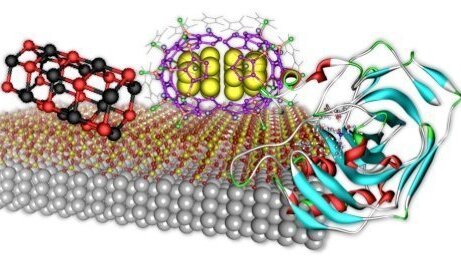Computational and Digital Materials Science
An overview of our current projects can be found here.
A high level of methodological competence is essential for competitive cutting-edge research in the field of Computational and Digital Materials Science. Therefore, in addition to the application of existing methods and algorithms, the development of novel, tailored approaches for data-driven materials development and materials simulations is a key part of our research.
Within the field of Digital Materials Science our goal is to build up the software infrastructure for the development of material ontologies, digital workflows and semantic material data spaces to systematize the handling of hierarchical, process-dependent material data.
Digitization of various material classes is expected to achieve groundbreaking synergies in the handling of data resources so that the properties and behavior of materials are better understood, more targeted optimization is possible and production processes become more effective. In addition, our goal is to improve the efficiency of materials development and manufacturing through digital workflows. This should accelerate the development of novel functional materials with superior properties and make them more cost-effective, environmentally friendly and sustainable.
In addition to the digitization of materials, the development of software tools and the application of a wide range of simulation methods in the field of Computational Materials Science are important components of our research program. These range from ab intio and atomistic approaches to mesoscale simulations and thermodynamic modeling.
In particular, the multinational software development project TurbomoleExternal link has become a valuable tool used by academic and industrial researchers. The Turbomole software package is used in research areas such as homogeneous and heterogeneous catalysis, inorganic and organic chemistry, biochemistry, and nanotechnology. Our contribution is the development of new simulation methods and algorithms that enable ab initio simulations of very large molecular and condensed matter systems. A particular focus of our research in this area is the high-precision prediction of mechanical, electronic, chemical, and optical properties of low-dimensional and nanostructured materials.
Visualization of different molecules and structures
Graphic: Marek Sierka
Otto Schott Institute of Materials Research
Löbdergraben 32
07743 Jena
